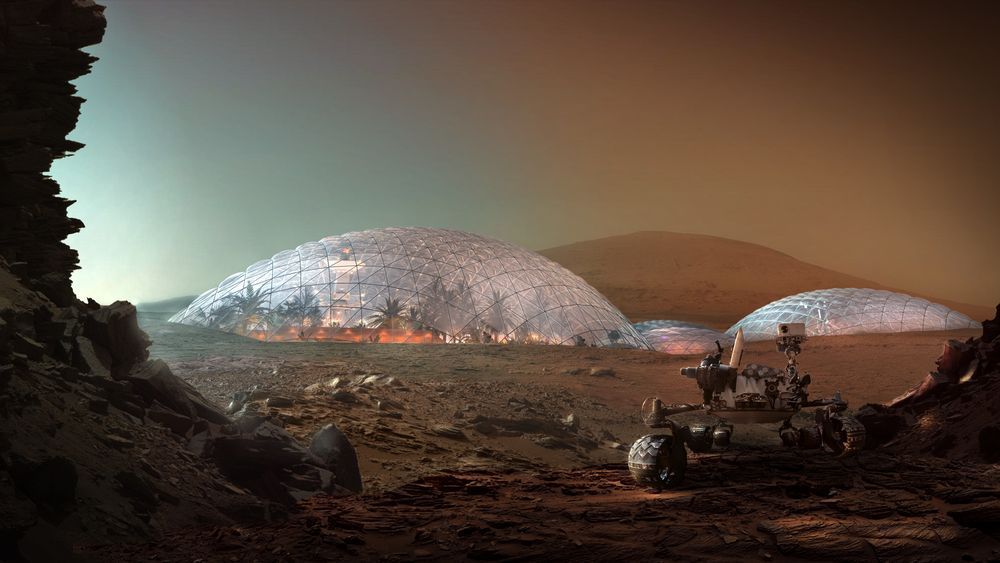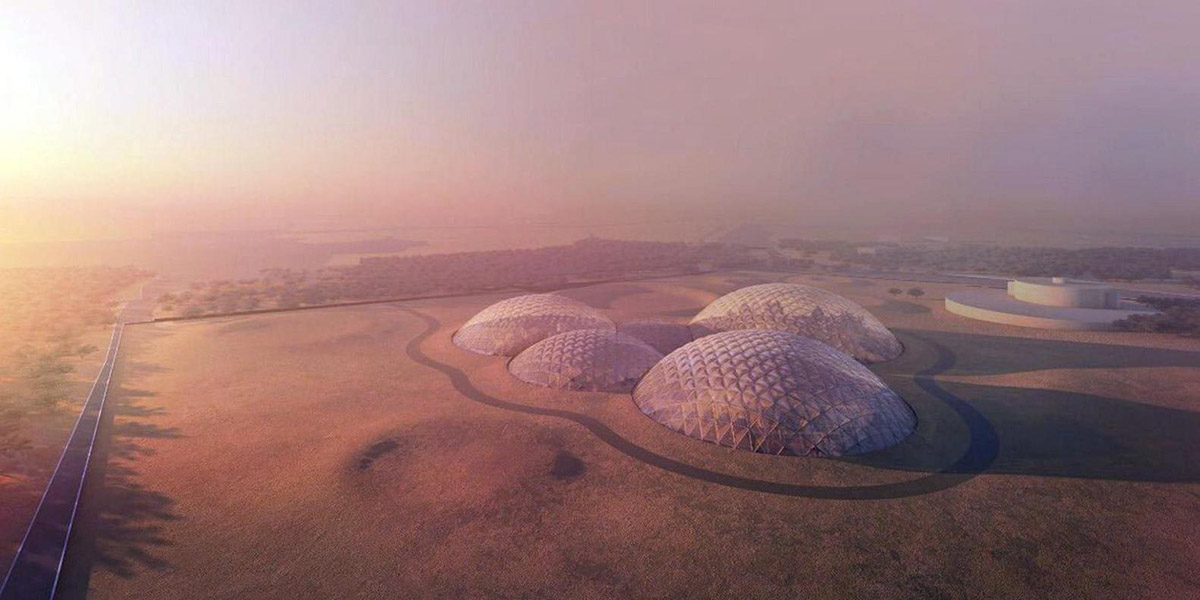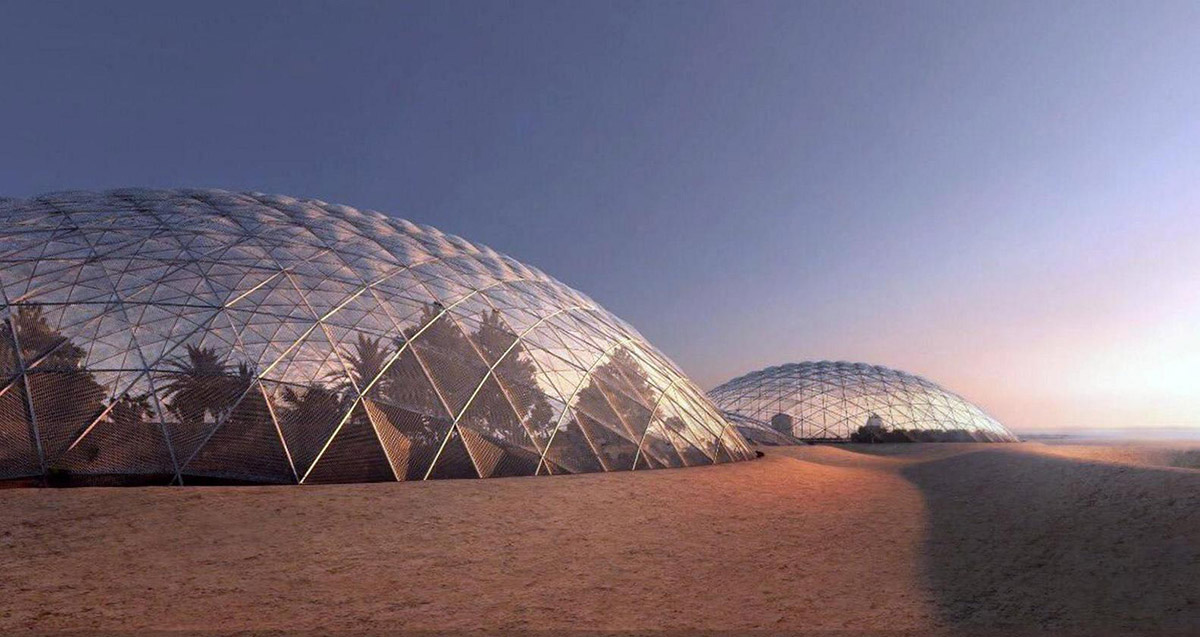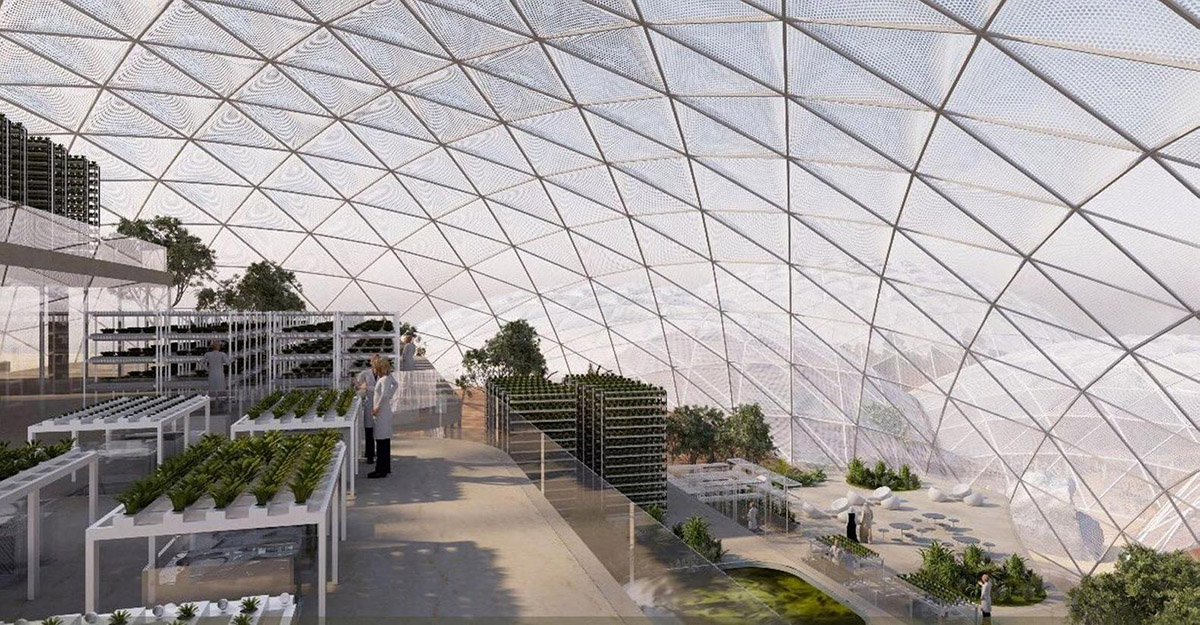Submitted by WA Contents
BIG unveils plans to build world’s largest Mars simulation city in UAE
United Arab Emirates Architecture News - Sep 29, 2017 - 13:25 15908 views

Danish architect Bjarke Ingels' firm BIG has unveiled plans to build world’s largest Mars simulation city in the UAE desert - a $140 million USD (AED 500 million) research city will be a new destination mimicking the conditions of life on Mars. The government of the United Arab Emirates had already announced its plans to build a "Mini-City" on Mars earlier this year, which will be ready within the next 100 years.
After several negotiations held with Danish firm BIG, the United Arab Emirates' leaders, comprised of Vice President, Prime Minister and Ruler of Dubai, His Highness Sheikh Mohammed bin Rashid Al Maktoum, and His Highness Sheikh Mohamed bin Zayed Al Nahyan, Crown Prince of Abu Dhabi and Deputy Supreme Commander of the UAE Armed Forces, have selected BIG to design the largest ever space simulation city in the UAE desert.

Encompassing a total of 1.9 million square feet (176,515 square meters), "Mars Science City Project" will be "a viable and realistic model" to simulate life on the surface of the red planet. Bjarke Ingels will closely be working with a team of Emirati scientists, engineers and designers, led by a team from the Mohammed bin Rashid Space Centre and Dubai Municipality, to carry out the project.
"The UAE seeks to establish international efforts to develop technologies that benefit humankind, and that establish the foundation of a better future for more generations to come," said Sheikh Mohammed bin Rashid, Vice President, Prime Minister and Ruler of Dubai.
"We also want to consolidate the passion for leadership in science in the UAE, contributing to improving life on earth and to developing innovative solutions to many of our global challenges."

"The UAE is a great country with vision and understanding of the challenges we face and the rapid changes our world is experiencing. We believe in the potential of space exploration, and in collaborating with global partners and leaders in order to harness the findings of this research and movement that seeks to meet people’s needs and improve quality of life on earth, he continued.
"The new project is another step in the UAE’s leading contributions to the global science movement; we seek to set an example and motivation for others to participate, and contribute, to humanity’s march into space," he concluded.
The design scheme proposes a series of domed structures which will host laboratories for food, energy and water, agricultural testing and studies about food security - and a museum displaying humanity’s greatest space achievements. The walls of the museum will be 3D printed, using sand from the Emirati desert.

Mars Science City project will include a variety of advanced laboratories that stimulate the red planet’s terrain and harsh environment through advanced 3D printing technology and heat and radiation insulation.
The project aims to attract the best scientific minds from around the world in a collaborative contribution in the UAE to human development and the improvement of life. It will also seek to address global challenges such as food, water and energy security on earth.

"We have great confidence in our national work teams, and Emirates Mars Mission prove that our youth are trustworthy and capable of achieving national ambitions," said Sheikh Mohamed bin Zayed.
As part of the project, a selected team will live inside the experimental module for one year to design and test multiple conditions of the Red Planet. It is hoped the experience will form an important reference model for future innovation around sustaining life in a hostile planetary environment. A range of experiments are to be devised which will lead to innovation around self-sufficiency in energy, water and food.
"The Mars Science City structure will be the most sophisticated building the world, and will incorporate a realistic simulation environment replicating the conditions on the surface of Mars," said the leaders of UAE.
In addition to other laboratories and experimental spaces, the museum will feature educational areas meant to engage young citizens with space, and inspire in them a passion for exploration and discovery. The plans will also include an amphitheatre as part of many recreational facilities, to upgrade scientists mental health to make their lives better in this remote area.
All images courtesy of UAE
